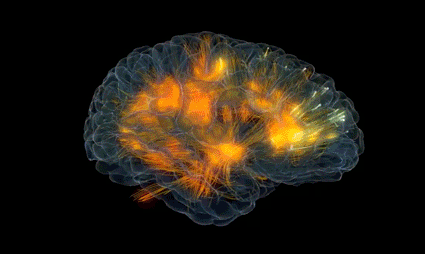Memory Loss from Stress: What Exactly Is It?


Written and verified by the psychologist Valeria Sabater
Experiencing memory loss from stress is much more common than you might think. It usually leads to quite a lot of worrying and anxiety: you forget appointments, conversations, names, and things on your shopping list. It gets hard to retain information or recall memories you’ve already made.
People say memory is a treasure you have to guard with special care. But you’ve probably all had times where right when you needed your memory the most, it failed you. Then you get scared: is this my first sign of dementia?
“Take a rest. A field that has rested gives a beautiful crop.”
-Ovidio-
But don’t get ahead of yourself. Before you start to think about brain degeneration, there’s one thing you have to remember. What causes 80% of the small, daily failures in memory is actually stress.
Don’t breathe a sigh of relief yet, either. Even though it’s not early-onset dementia, you still have to think about chronic stress and long-term anxiety disorders. Both of those things change the way your brain works.
Your brain is very vulnerable to your lifestyle. That’s especially true when it comes to how you manage your everyday worries and tension.

Memory loss from stress: why does it happen?
We all do it sometimes: you leave work and come home on “auto-pilot.” You open the door to your house and put your hands to your head in anger and frustration: how could you have forgotten to pick up your kid from practice? You run to your car but — you realize you don’t have your keys.
This exhausting cycle of stress and anxiety seems endless. Surreal situations like these are quite common, just like the feeling that you’re losing control of your whole life. There aren’t many things as distressing as forgetting important things in your daily life.
Now if you’re asking yourself what’s really behind memory loss from stress, we’re going to point you to an old friend: the hormone cortisol. Your body releases this glucocorticoid from your adrenal glands as a response to stress.
But the mere fact that your cortisol level goes up a bit more than normal for a moment isn’t a huge problem. In fact, a small cortisol boost at the right time can actually improve your formation of new memories.
The worrying part is when your body releases glucocorticoids consistently over weeks or months. That’s when you’ll start to have problems remembering information and recalling memories you already have.
Now let’s look at what impact that has on your brain.

The effects of cortisol on your brain
- An excess of cortisol in the brain is actually toxic.
- Your hippocampus, related to memory and emotions, gets smaller.
- Memory loss from stress is also related to the fact that cortisol makes it harder for blood to flow to your brain. That means you’ll get fewer nutrients and less oxygen, resulting in a higher risk of brain embolisms, strokes, etc. It’s serious.
- If there’s a consistent release of cortisol you’ll also notice one more effect: you release fewer endorphins. What that leads to is more discomfort and a marked inability to enjoy things that you usually like doing: sports, laughing and spending time with loved ones, food…
- Last but not least, cortisol also affects your sleep-wake cycle. You’ll go through periods of insomnia or nights when you keep waking up.
What can you do to reduce memory loss from stress?
If you’ve noticed in the last few weeks or months any unusual memory loss, the best thing to do is talk to your doctor. Sometimes these kinds problems just have to do with a poor diet (vitamin D or vitamin B12 deficiency).
There are also disorders like hyperthyroidism that can alter your cognitive abilities. So if you want to assuage your worries, the best thing would be to talk to a medical professional.

Once you’ve ruled out medical problems, you can focus in on the issue of managing your stress. Let’s look at some ways to do that.
- Identify your stressors. Notice how your body reacts: muscle tension, stiffness in your neck, shoulders, or jaw, heart palpitations…
- You can’t deal with stress just by avoiding things that take away your peace. You manage it by confronting those things. You have to set priorities, make decisions, and take control of your own life.
- Use breathing techniques.
- Reinterpret your life. Take a second to think about what’s really important in your life. Slow down. Appreciate the present.
- Eat healthy. Fresh fruits and vegetables, lots of water, oats, valerian root tea, chamomile…
- Magnesium supplements are also a great way to protect your brain from the effects of stress.
- Go for a walk for half an hour every day. It will help you clear your mind, you’ll think of things differently, and you’ll improve your circulation. That way your brain will get more nutrients and oxygen.
To conclude, memory loss from stress can really affect your life. If you don’t deal with the root of the problem, the stress will get worse and worse until it starts having an even more destructive effect. Your mood will go way down, you’ll lose your motivation…
So learn to slow down and not try to rush through your life. Your health is always the most important thing.
All cited sources were thoroughly reviewed by our team to ensure their quality, reliability, currency, and validity. The bibliography of this article was considered reliable and of academic or scientific accuracy.
- Roozendaal, B., McEwen, B. S., & Chattarji, S. (2009, June). Stress, memory and the amygdala. Nature Reviews Neuroscience. https://doi.org/10.1038/nrn2651
- Kim, J. J., Song, E. Y., & Kosten, T. A. (2006, March). Stress effects in the hippocampus: Synaptic plasticity and memory. Stress. https://doi.org/10.1080/10253890600678004
- Philippe R. Goldin, James J. Gross (2010) Effects of Mindfulness-Based Stress Reduction (MBSR) on Emotion Regulation in Social Anxiety Disorder. Emotion https://dx.doi.org/10.1037%2Fa0018441
This text is provided for informational purposes only and does not replace consultation with a professional. If in doubt, consult your specialist.








